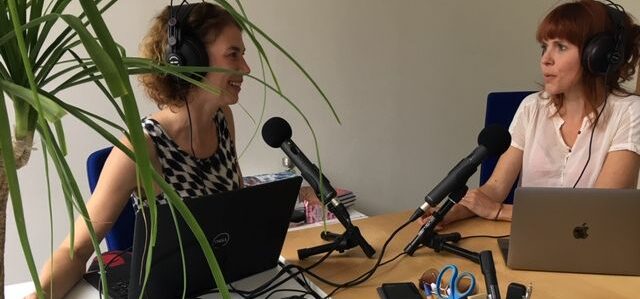May 28, 2020
What about social and economic rights?
What’s the first thing that comes to mind when you think about human rights violations? Chances are that you are thinking about issues like torture, political detention, disappearance or extrajudicial killings – in other words, violations of civil and political rights. This set of rights continues to enjoy a privileged status in a lot of the human rights scholarship and practice.
Unsurprisingly, violations of these rights have also been the focus of most transitional justice interventions. In the past decade, however, we’ve witnessed more attention for violations of economic, social and cultural rights: when combatants poison a drinking well, burn crops or loot health infrastructure, these are acts that constitute violations of economic, social and cultural rights – and they can be prosecuted.
Moreover, violations of economic, social and cultural rights are often related to violations of civil and political rights, as well as to larger issues of social and economic injustice – but how exactly?
In recent years, a lot of excellent scholarship and practice started to provide answers to this question.
In this episode, we talk to three experts on this topic:
Evelyne Schmid from the University of Lausanne is a leading expert on social, economic and cultural rights and international criminal justice.
Simon Robins is a humanitarian practitioner and senior research fellow at the University of York working on social-economic justice.
Zinaida Miller is Assistant Professor of International Law and Human Rights at the School of Diplomacy and International Relations at Seton Hall University
Together with them, we explore what room there is within the existing legal framework of transitional justice, as well as beyond it, to pay more attention to social and economic rights and needs. How can and should transitional justice engage with these issues? What are the pitfalls? And what if victims were the ones to shape the transitional justice agenda: would they prioritize truth and justice, or rather their social and economic needs? And is there really such a strong dichotomy?
April 30, 2020
Victimization
When talking about victim participation in transitional justice processes, we need to better understand the notions of victim, victimhood, and victimization, as well as the related phenomena of retraumatization and tertiary victimization. In this episode, we talk to scholars, practitioners, and artists to arrive at a more responsive and empowering understanding.
April 1, 2020
The evolution of the field (with Laurel Fletcher)
From the previous episode, it became clear how strongly the field of transitional justice is interwoven with that of international criminal justice. What does that mean for the evolution of the field of transitional justice and where it is going, especially with regard to the role played by victims in this process? In this episode we talk to Laurel Fletcher, director of the International Human Rights Law Clinic at Berkeley Law, to better understand where we come from and where we are headed, and what the most important evolutions are to expect in the next decade.
February 28, 2020
Legal Opportunities and Challenges (with Stephan Parmentier and Rudina Jasini)
Victim participation is receiving increasing attention in transitional justice. In the pilot episode, it became clear that there is potentially tremendous value in victim participation, but that there are also many pitfalls. Before we dive into the murkiest questions facing us in practice, we take a step back and ask two of the legal experts affiliated to Justice Visions, Stephan Parmentier and Rudina Jasini, what is even possible – legally speaking – in terms of victim participation: what formal restrictions are there, and how do these affect the avenues and modalities of victim participation and the justice process itself. We also reflect with them on some of the experiences of practitioners, like Sangeetha Yogendran, in this regard.
December 11, 2019
Introduction to Justice Visions
Welcome to the pilot episode of Justice Visions Talks, your go-to for everything that is new and innovative in the domain of transitional justice. In this short introductory episode, we want to briefly tell you more about what you can expect from us, how this podcast came about and why you should listen to it.




